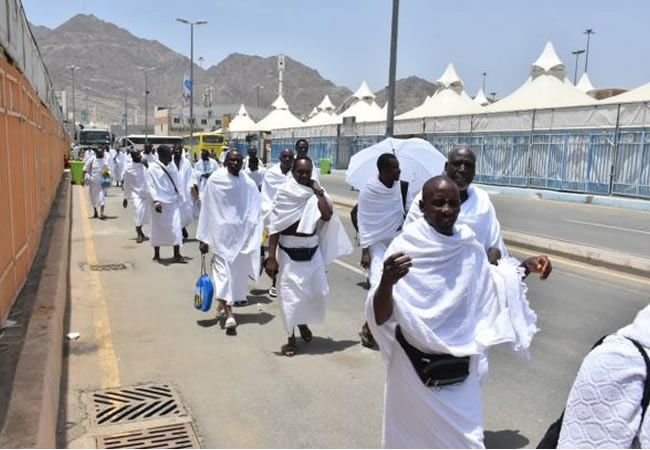The Director, Da’awah, Kebbi Pilgrims Welfare Board, Imam Aminu Hassan
has urged the pilgrims to endeavour to perform Hajj according to the Sunnah of Prophet Muhammad (Peace be Upon Him).
The News Agency of Nigeria reports that the cleric disclosed this in an address shortly after the Subhi (dawn) prayer in Makkah, the Kingdom of Saudi Arabia on Saturday.
He quoted the Prophet (SAW) as saying, “Performing Hajj Mabrur (acceptable Hajj) has no reward except entering Paradise.”
The cleric, therefore, advised the pilgrims to remain close to Ulama (Islamic Clerics) and frequently ask questions on grey areas, “so that we can perform Hajj according to the Sunnah.”
Hassan reminded them that each pillar of Hajj consists of supligatory and voluntary aspects, which a pilgrim needed to observe in line with Prophetic teachings.
Taking the pilgrims through the stages step-by-step, the cleric said 8th day of Zul-Hijja would be the D-Day for the commencement of Hajj proper.
“A pilgrim is expected to take bath in his/her hotel, spray perfume on his body not on the Ihram, then wear the Ihram, perform two raka’at (Nawafil) and join his bus to Muna.
“When the driver takes off, the pilgrim will then pronounce his intention; Labaikalla-humal Hajjan meaning; ‘Oh Lord, I have answered Your call to perform Hajj,’ he noted.
The cleric assured that on reaching Muna, a cleric would be attached to each tent to be guiding pilgrims on what to do next to enable them perform Hajj Mabrur.
He, however, admonished the pilgrims to use the remaining period to learn how to perform Hajj effectively right from wearing of Ihram up to the time of removing it.
No fewer than three missing Nigerian pilgrims were rescued by the Kebbi Government Officials in Mecca, the Kingdom of Saudi Arabia, PUNCH Online reported days ago. https:///three-nigerian-pilgrims-missing-in-mecca-rescued
The term “Sunnah” in Islam refers to the practices, teachings, and traditions of the Prophet Muhammad.
It encompasses his sayings (Hadith), actions, and approvals, serving as a model for Muslims to follow.
The Sunnah complements the Quran, providing context and practical examples for its implementation.
It is considered a primary source of Islamic jurisprudence, second only to the Quran itself.
(NAN)
